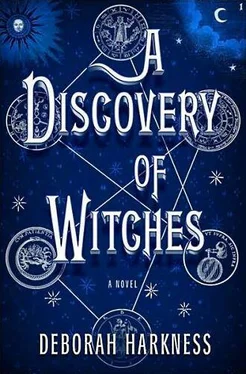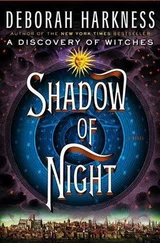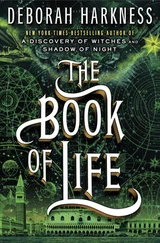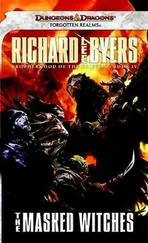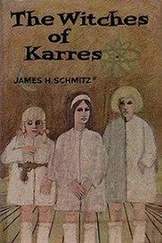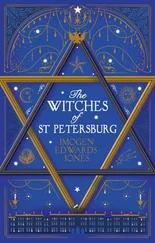Finally we reached the end of the room. A dozen small doors stood locked and silent, and Matthew opened one of them. There was no electricity here, but he picked up a candle and wedged it securely into a brass holder before lighting it.
Inside, everything was as neat and orderly as Matthew himself, but for a layer of dust. Tightly spaced wooden racks held the wine off the floor and made it possible to remove a single bottle without making the whole arrangement tumble down. There were red stains next to the jamb where wine had been spit, year after year. The smell of old grapes, corks, and a trace of mildew filled the air.
“Is this yours?” I was incredulous.
“Yes, it’s mine. A few of the fellows have private cellars.”
“What can you possibly have in here that isn’t already out there?” The room behind me must contain a bottle of every wine ever produced. Oxford’s finest wine emporium now seemed barren and oddly sterile in comparison.
Matthew smiled mysteriously. “All sorts of things.”
He moved quickly around the small, windowless room, happily pulling out wines here and there. He handed me a heavy, dark bottle with a gold shield for a label and a wire basket over the cork. Champagne—Dom Perignon.
The next bottle was made from dark green glass, with a simple cream label and black script. He presented it to me with a little flourish, and I saw the date: 1976.
“The year I was born!” I said.
Matthew emerged with two more bottles: one with a long, octagonal label bearing a picture of a château on it and thick red wax around the top; the other lopsided and black, bearing no label and sealed with something that looked like tar. An old manila tag was tied around the neck of the second bottle with a dirty piece of string.
“Shall we?” Matthew asked, blowing out the candle. He locked the door carefully behind him, balancing the two bottles in his other hand, and slipped the key into his pocket. We left behind the smell of wine and climbed back to ground level.
In the dusky air, Matthew seemed to shine with pleasure, his arms full of wine. “What a wonderful night,” he said happily.
We went up to his rooms, which were grander than I had imagined in some ways and much less grand in others. They were smaller than my rooms at New College, located at the very top of one of the oldest blocks in All Souls, full of funny angles and odd slopes. Though the ceilings were tall enough to accommodate Matthew’s height, the rooms still seemed too small to contain him. He had to stoop through every door, and the windowsills reached down to somewhere near his thighs.
What the rooms lacked in size they more than made up for in furnishings. A faded Aubusson rug stretched across the floors, anchored with a collection of original William Morris furniture. Somehow the fifteenth-century architecture, the eighteenth-century rug, and the nineteenth-century rough-hewn oak looked splendid together and gave the rooms the atmosphere of a select Edwardian gentlemen’s club.
A vast refectory table stood at the far side of the main room, with newspapers, books, and the assorted detritus of academic life neatly arranged at one end—memos about new policies, scholarly journals, requests for letters and peer reviews. Each pile was weighted down with a different object. Matthew’s paperweights included the genuine article in heavy blown glass, an old brick, a bronze medal that was no doubt some award he’d won, and a small fire poker. At the other end of the table, a soft linen cloth had been thrown over the wood, held down by the most gorgeous Georgian silver candlesticks I’d ever seen outside a museum. A full array of different-shaped wineglasses stood guard over simple white plates and more Georgian silver.
“I love it.” I looked around with delight. Not a stick of furniture or a single ornament in this room belonged to the college. It was all perfectly, quintessentially Matthew.
“Have a seat.” He rescued the two wine bottles from my slack fingers and whisked them off to what looked like a glorified closet. “All Souls doesn’t believe that fellows should eat in their rooms,” he said by way of explanation as I eyed the meager kitchen facilities, “so we’ll get by as best we can.”
What I was about to eat would equal the finest dinner in town, no doubt.
Matthew plunked the champagne into a silver bucket full of ice and joined me in one of the cozy chairs flanking his nonfunctional fireplace. “Nobody lets you build fires in Oxford fireplaces anymore.” He motioned ruefully at the empty stone enclosure. “When every fireplace was lit, the city smelled like a bonfire.”
“When did you first come to Oxford?” I hoped the openness of my question would assure him I wasn’t prying into his past lives.
“This time it was 1989.” He stretched his long legs out with a sigh of relaxation. “I came to Oriel as a science student and stayed on for a doctorate. When I won an All Souls Prize Fellowship, I switched over here for a few years. When my degree was completed, the university offered me a place and the members elected me a fellow.” Every time he opened his mouth, something amazing popped out. A Prize Fellow? There were only two of those a year.
“And this is your first time at All Souls?” I bit my lip, and he laughed.
“Let’s get this over with,” he said, holding up his hands and beginning to tick off colleges. “I’ve been a member—once—of Merton, Magdalen, and University colleges. I’ve been a member of New College and Oriel twice each. And this is the first time All Souls has paid any attention to me.”
Multiplying this answer by a factor of Cambridge, Paris, Padua, and Montpellier—all of which, I was sure, had once had a student on their books named Matthew Clairmont, or some variation thereof—sent a dizzying set of degrees dancing through my head. What must he have studied, all those many years, and whom had he studied with?
“Diana?” Matthew’s amused voice penetrated my thoughts. “Did you hear me?”
“I’m sorry.” I closed my eyes and tightened my hands on my thighs in an effort to keep my mind from wandering. “It’s like a disease. I can’t keep the curiosity at bay when you start reminiscing.”
“I know. It’s one of the difficulties a vampire faces when he spends time with a witch who’s a historian.” Matthew’s mouth was bent in a mock frown, but his eyes twinkled like black stars.
“If you want to avoid these difficulties in future, I suggest you avoid the Bodleian’s paleography reference section,” I said tartly.
“One historian is all I can manage at the moment.” Matthew rose smoothly to his feet. “I asked if you were hungry.”
Why he continued to do so was a mystery—when was I not hungry?
“Yes,” I said, trying to extract myself from a deep Morris chair. Matthew stuck out his hand. I grasped it, and he lifted me easily.
We stood facing each other, our bodies nearly touching. I fixed my attention on the bump of his Bethany ampulla under his sweater.
His eyes flickered over me, leaving their trail of snowflakes. “You look lovely.” I ducked my head, and the usual piece of hair fell over my face. He reached up as he had several times recently and tucked it behind my ear. This time his fingers continued to the base of my skull. He lifted my hair away from my neck and let it fall through his fingers as if it were water. I shivered at the touch of cool air on my skin.
“I love your hair,” he murmured. “It has every color imaginable—even strands of red and black.” I heard the sharp intake of breath that meant he had picked up a new scent.
“What do you smell?” My voice was thick, and I still hadn’t dared to meet his eyes.
“You,” he breathed.
Читать дальше
